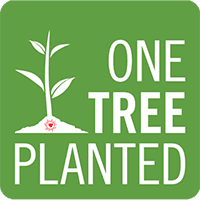
25 trees will be planted on your behalf for every experience purchased, via our partnership with One Tree Planted.
See more at onetreeplanted.org
During the internship, you will gain experience of a foreign working environment and learn by observing the procedures of the house doctors. The internship can take place in either government, private or community hospitals in and around Kathmandu. This program is aimed at students of medicine or those with a medical background. You will spend your internship in Kathmandu in shadowing doctors, observing medical experts and will be called upon to assist doctors and nurses.
Cultural Introduction
The first week of your internship is composed of an introduction to the local culture, customs, dos and don’ts. This week will get you kickstarted into this amazing country located at the foothills of the mighty Himalayas. Not only will you get to learn about the language and lifestyle, but you will also visit see the city and will learn to get around the place on your own.
During the first 3 days from Monday to Wednesday, you will get to know the life and style of Nepal and learn what to expect during your internship. Your internship coordinator will show you around the city and will give you tips and tricks you must know when in Nepal.
From Thursday to Friday on your first week, you will receive an academic introduction session before the internship. During these sessions, a professional supervisor will educate you about the local situation and developments surrounding the industry/field in which the internship takes place and prepares the intern for the local work environment/culture.
What’s included?
Volunteer experiences have a direct and positive impact on local communities by injecting money into the local economy through the purchase of food, transportation, and tourism activities. Volunteering is a great way to give back to the comunity and make a difference in the world. Depending on the type of volunteer experience you are interested in, your time can be spent improving educational resources and opportunities, providing medical services to underserved communities, or promoting environmental conservation and sustainable farming techniques.

25 trees will be planted on your behalf for every experience purchased, via our partnership with One Tree Planted.
See more at onetreeplanted.org

1% of gross sales will be donated to 1% for the Planet-approved charities via our partnership with 1% for the Planet.
See more at onepercentfortheplanet.org
Kathmandu, the capital and largest city in Nepal, is like no other city in the world. The decaying buildings in the heart of the city are a contrast to the lively atmosphere that permeates the streets. The smell of incense wafts from the stores while street sellers push their wares, and people go about their daily lives, all against a backdrop of historic temples and carved statues.
For several hundred years, Kathmandu was one of three rival royal cities, along with Bhaktapur and Patan. Situated in close proximity to each other, today these three almost run together. The highlight of Kathmandu has long been Durbar Square, the largest of the palace squares in the three royal cities and a UNESCO World Heritage Site. Temples and monuments of varying shapes, sizes, styles, and faiths can be found here.
Kathmandu's Durbar Square was severely damaged in the 2015 earthquake, with many buildings destroyed beyond repair.
For most visitors to Nepal, Kathmandu Valley is the arrival point and the primary focus of the visit. This small, mountain-sheltered valley is the historical center of Nepal, a place where kingdoms rose and fell, where palaces and temples were built and rebuilt, and where Nepali art and culture was developed and refined. Rivers and streams interlace with the landscape, the brick-red villages cling to ridges to preserve precious land and even from the bustling centers of each of the cities, it is possible to catch a glimpse of the snow-capped peaks of the majestic Himalayas against the intense blue skies.
You will spend the day shadowing doctors and may be called upon to assist doctors and nurses. When there is an operation you get to observe it. Tasks and timings vary depending on the current needs at the hospital. You will be working 25+ working hours per week.
Leave the accommodation on Saturday morning. Take a taxi to the airport (1 hour) for flights Saturday or Sunday Morning
You will be provided with three meals a day on weekdays and two meals per day on weekends. The meals are a mix of Western and Nepalese food, consisting mainly of vegetarian dishes including rice and vegetables. You can expect to have a chicken dish about once per week. You can also choose to eat out at any of the local restaurants.
There is a mini library where you can read, a beautiful garden to relax in and dining and lounge areas where you can hang out with fellow participants. Furthermore, there is a refrigerator which you are welcome to use to store food and beverages.